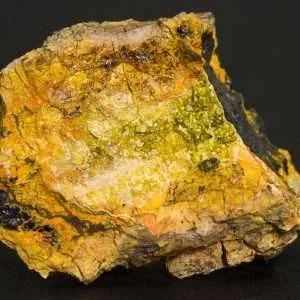Canadian authorities have approved Paladin Energy’s acquisition of Fission Uranium, a deal valued at approximately $1.5 billion.
The approval comes with specific conditions aimed at limiting Chinese influence over Canada’s uranium assets.
Key Conditions Imposed:
- Board Composition: Paladin must ensure that the majority of its board members are independent, and at least one member is a Canadian resident.
- Sales Restrictions: The company is prohibited from selling uranium to China beyond existing agreements.
These measures underscore Canada’s commitment to maintaining control over critical mineral resources and ensuring that uranium supplies serve domestic markets and Western allies.
Background of the Acquisition:
Paladin Energy, an Australian uranium producer, announced its intention to acquire Fission Uranium, a Canadian company, in June 2024. The all-share deal offers Fission shareholders 0.1076 Paladin shares for each Fission share held, representing a 30% premium based on the 20-day volume-weighted average price at the time of the announcement.
Strategic Implications:
This acquisition positions Paladin as a significant player in the global uranium market, with diversified assets across Canada, Namibia, and Australia. The combined entity is expected to enhance its project development pipeline, aiming for multi-asset production by 2029.
Regulatory Scrutiny and Chinese Involvement:
The deal faced scrutiny due to concerns over Chinese influence, particularly after China General Nuclear Power Corporation attempted to block the transaction. The imposed conditions are designed to mitigate such influence, ensuring that Canada’s uranium resources remain under domestic and allied control.
Next Steps:
With regulatory approvals secured, the transaction is expected to close by early January 2025. Fission shareholders will own approximately 24% of the combined company, while Paladin shareholders will hold about 76%.
This strategic acquisition reflects the ongoing consolidation in the uranium sector, driven by increasing global demand for nuclear energy as a low-carbon power source.





